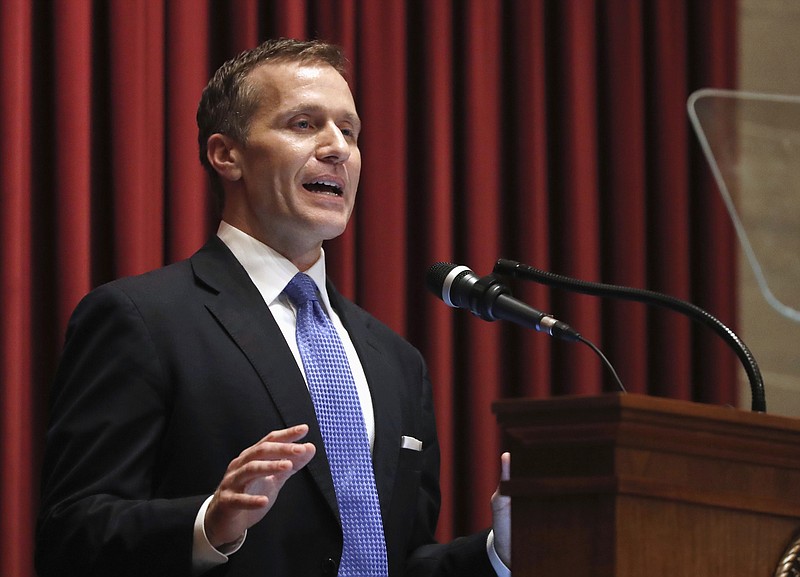Gov. Eric Greitens' K-12 public education budget priorities for the 2019 fiscal year are built upon a hope that increased funding for schools will translate into "a badly needed raise" for teachers.
However, the reality of school district budgets is a little more complicated.
"It's not designed to directly interact with teacher pay," Otto Fajen said of the state's foundation formula to support public education. Fajen is the legislative director of the Missouri National Education Association.
"The Legislature and governor's role in education is about funding the overall capacity. The details of compensation are a matter of the employer and employee negotiations at the local level," Fajen added, explaining the Legislature shouldn't count on the foundation formula to support any specific aspect of public education.
"We're not usually in the habit of thinking that the budget itself at the state level is going to dictate that," he said.
Greitens wants to add $87.5 million in his education budget from last year for a total funding level of a record $6.1 billion, which would make elementary and secondary education 21 percent of the state's proposed operating budget - second only to human services' 46 percent stake at $13.3 billion.
Greitens would add $50.5 million of the proposed $87.5 million to the state's education foundation formula.
"I think we have to be pleased that the governor is recommending a $50 million increase in the formula," said Brent Ghan, deputy executive director of the Missouri School Boards' Association, "although we're hoping that legislators will be able to make even more progress."
He said the Department of Elementary and Secondary Education has estimated it would take about a $98 million increase to fully fund the state's education formula.
Even if or when the formula is fully funded, Fajen said, there are concerns it will still be inadequate.
"We're grateful for any additional resources," Blair Oaks R-2 Superintendent Jim Jones said. He said he understands, though, "there's still a lot of water that'll travel under the bridge before we get to the end of this (state budgetary) process."
Like Fajen and Ghan, Jones said proposed school transportation cuts in the governor's budget are a concern.
"Something's got to backfill any shortfall that occurs," Jones said. "Our challenge (as a district) then becomes to find areas that will have the least amount of negative effect on student learning."
"We don't have money just for transportation and just for salaries," he said of the district's budget, adding, "Any new monies we receive have to address a lot of different areas."
"There was a time back in the 1990s when the state provided as much as 70 percent of the cost of transporting kids to school," Ghan said, but that share of the expenses by the state is now down to 16 percent on average - leaving local taxpayers to pick up the difference.
"We're hoping that the Legislature might see fit to increase that level of support for school transportation," he said, noting the proposed $13 million in transportation cuts to what the governor appropriated last year especially puts pressure on rural districts.
Even if all things stayed equal, Jones said school budgets grow every year just based on the passage of time - with each passing year, staff move further up salary step schedules that reward experience. There is the concept of pay freezes - which he said Blair Oaks has never done - but there's also inflation of insurance and retirement costs, and each new hire adds to these expenses.
"We're in the people business," Ghan said of education and its extensive personnel expenses. "A lot of that is likely to go to personnel and teachers' salaries," he said of the governor's proposed increase to the foundation formula. He added the money would be spread out across the state, so he doesn't know how much of a difference on a local level $50 million would make.
Jason Hoffman, Jefferson City Public Schools' chief financial and operating officer, said in November that if that district's share of state funding in its revenues was higher, "it would probably just enable us to operate with a lower fund balance."
That means more money in the budget could be spent throughout the year instead of being kept on hand in reserve, Hoffman said.
"Hopefully, an increase in funding would be helpful to increase salaries," Ghan said.
He thinks teacher salaries are already a priority for all districts.
"Any additional state support would certainly be helpful in that area."

